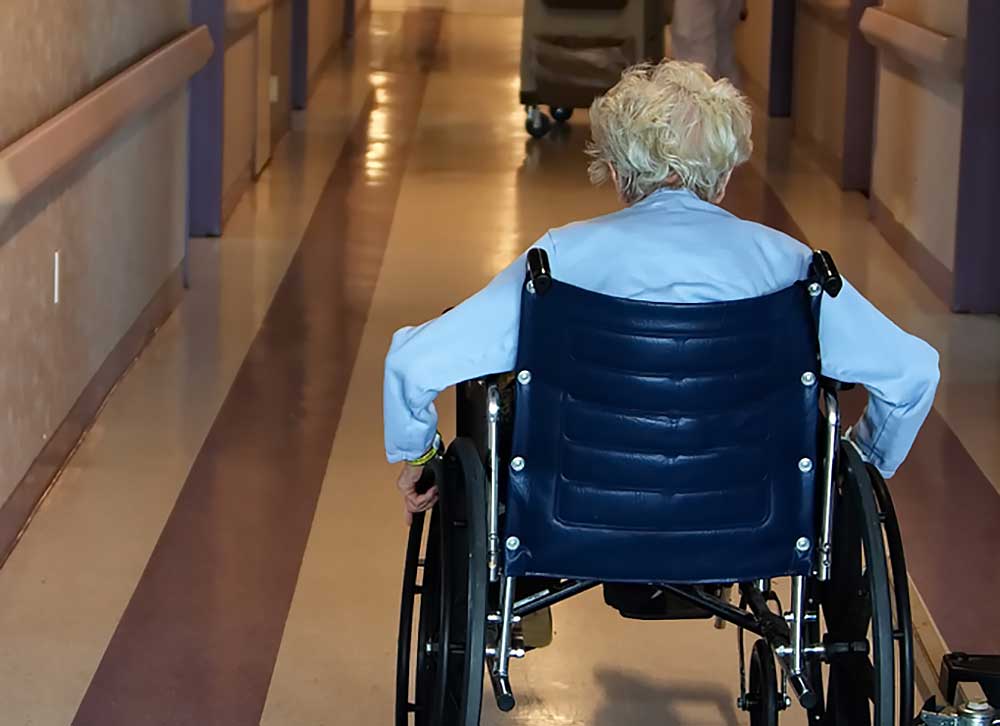
A nursing home or long-term care facility should represent a safe place where residents can receive the care, attention, and respect they deserve. And though that’s the case for many residents, some will go on to become victims of nursing home abuse.
Elder abuse, specifically in a care facility, comes in a variety of forms and can take place at the hands of caregivers and staff as well as other residents. Typically, abuse falls into one of the following categories, though residents who are abused are often the victim of more than one type of abuse.
Alzheimer’s Abuse
Physical Abuse
Elder Sexual Abuse
Psychological and Emotional Abuse
General Neglect
Financial Abuse or Exploitation

Alzheimer’s Abuse
According to the Alzheimer’s Association, more than 50 percent of residents in nursing homes and other assisted living facilities have some form of cognitive impairment, including Alzheimer’s. These residents are particularly vulnerable to abuse, yet they may not always recognize or report the abuse. Residents who are victims of Alzheimer’s abuse may suffer from the following:
- Physical injury
- Verbal assaults and threats
- Harassment
- Intimidation
- Neglect leading to lack of nutrition, hygiene, and proper self-care
- Isolation and confinement
- Financial exploitation
- Sexual abuse
When a nursing home resident is the victim of abuse that results in physical pain and injuries, they are the victim of physical abuse. This type of abuse places already frail patients at an even higher risk for injuries and death, though it can also lead to cognitive decline, depression, anxiety, fear, and other emotional concerns. Physical abuse includes:
- Slapping, punching, hitting or striking
- Kicking
- Biting
- Pushing or grabbing
- Using an object to injure the resident
- Unnecessarily restraining residents
Sexual abuse is a violation of trust between the victim and a caregiver. It can refer to unwanted sexual contact of any kind as well as sexual contact that occurs when a resident is feels threated, is impaired, or otherwise lacks the cognitive ability to consent. Sexual abuse includes the following:
- Sexual assault and battery
- Explicit photography or videography
- Forced/coerced nudity
- Unwanted touching or fondling
Physical abuse and emotional abuse can be verbal or non-verbal, and many experts believe that is may be the most common form of abuse experienced by nursing home residents. It is often difficult to track yet can have a significant impact on the mental and emotional health of victims. Emotional elderly abuse can take on any of the following forms:
- Threats and intimidation
- Screaming and shouting
- Insulting and ridiculing
- Public humiliation
- Treating the resident like a child or otherwise belittling them
- Ignoring or giving the resident the silent treatment
- Isolating the resident or preventing them from socializing
- Withholding basic living essential like food and water
- Intentionally confusing or misleading residents
Neglect, quite simply, is the result of inaction or the failure of caregivers to properly attend to and fulfill the needs of residents as it relates to the victim’s physical, emotional, and mental health. Neglect can take on many forms but often appears as one or more of the following:
- Failing to provide the appropriate medications and doses
- Failing to take appropriate measures to prevent injuries, infections, and bedsores
- Refusing to address pain, illness, or other complaints such as abuse.
- Failing to seek medical attention when necessary
- Preventing patients from accessing medically required devices and aids
- Withholding necessities, including food, water, and shelter
- Failing to assist residents with bowel movements or allowing them to sit in soiled clothing
- Refusing to contact medical support or family members when necessary
- Failing to maintain a safe and secure living environment.
- Leaving high-risk patients unsupervised and prone to falls, broken bones, and head injuries.
Financial abuse and exploitation costs Americans billions of dollars each year, and yet the National Council on Aging suggests that it is still underreported. Nursing home residents can be particularly vulnerable to financial abuse and other deceptive practices. Further, this type of abuse can be hard to identify, leaving some victims to lose substantial amounts of money or property before the culprit is caught. The following examples constitute financial abuse and exploitation:
- Forging signatures
- Cashing checks or engaging in other forms of banking without the resident’s permission
- Stealing a resident’s money or property
- Manipulating and coercing resident’s into signing legally binding documents such as wills
- Stealing a resident’s sensitive information, including their social security number

